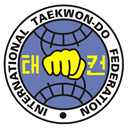- Must treat everyone fairly and sensitively regardless of their Age, Disability, Gender reassignment, Marriage and civil partnership, Pregnancy and maternity, Race, Religion and belief, Sex, Sexual orientation and Ability. (Ensure that proper supervision is provided by suitably qualified instructors/coaches and officials who are capable of promoting good sporting behaviour and good technical skills).
- Do not manipulate the rules in order to benefit yourself personally or your club. (Accept the special role that you have to play in the establishment of standards by setting a good example of behaviour and conduct at all times).
- Encourage all students and instructor/coaches to abide by the rules and spirit of the activity. (Show respect to students, instructors/coaches, officials and other volunteers involved in the activity/competition).
- Do not use foul, sexist or racist language. (Remember activity is enjoyed for its own sake – play down the importance of awards).
- Use your official position to take action against others who harass, abuse or use foul, sexist or racist language towards participants, instructors/coaches, officials and volunteers. (Children play for pleasure and winning is only part of the fun)
- Ensure all equipment and facilities meet safety standards. (Keep yourself informed about sound teaching/coaching practices and the principles of children’s growth and development).
- Check you have adequate insurance cover for the activities you are undertaking. (Be reasonable in your demands on children’s time, energy and enthusiasm – they need other interests too).
- Respect the rights of other clubs. (Never ridicule or shout at a child for making a mistake or losing).
- Arrive in plenty of time to set up your activities and ensure safety. (Take responsibility for the young people in your care until they have safely left the activity).
- Endeavour not to influence the result of an activity/ competition by any actions that are not strictly within the rules.
- Always have regard to the best interests of the sport, including where publicly expressing an opinion of the sport and any particular aspect of it, including others involved in it.
- Resist all illegal or unsporting influences, including banned substances and techniques.
- Promote ethical principles.
- Set a good example which others can follow.
- The successful instructor/coach invests in the wellbeing and interests of their students, not their win/loss record.
- Teach your students that honest effort if more important than victory so that the result of each event is accepted without undue disappointment.
- Teach students to be fair and to follow the rules.
- Divide your time equally between all standards of students.
- Ensure you and your students have respect for their opponents, the officials and opposing instructors/ coaches and supporters.
- Follow advice from a professional when determining if an injured student is ready to play or train.





